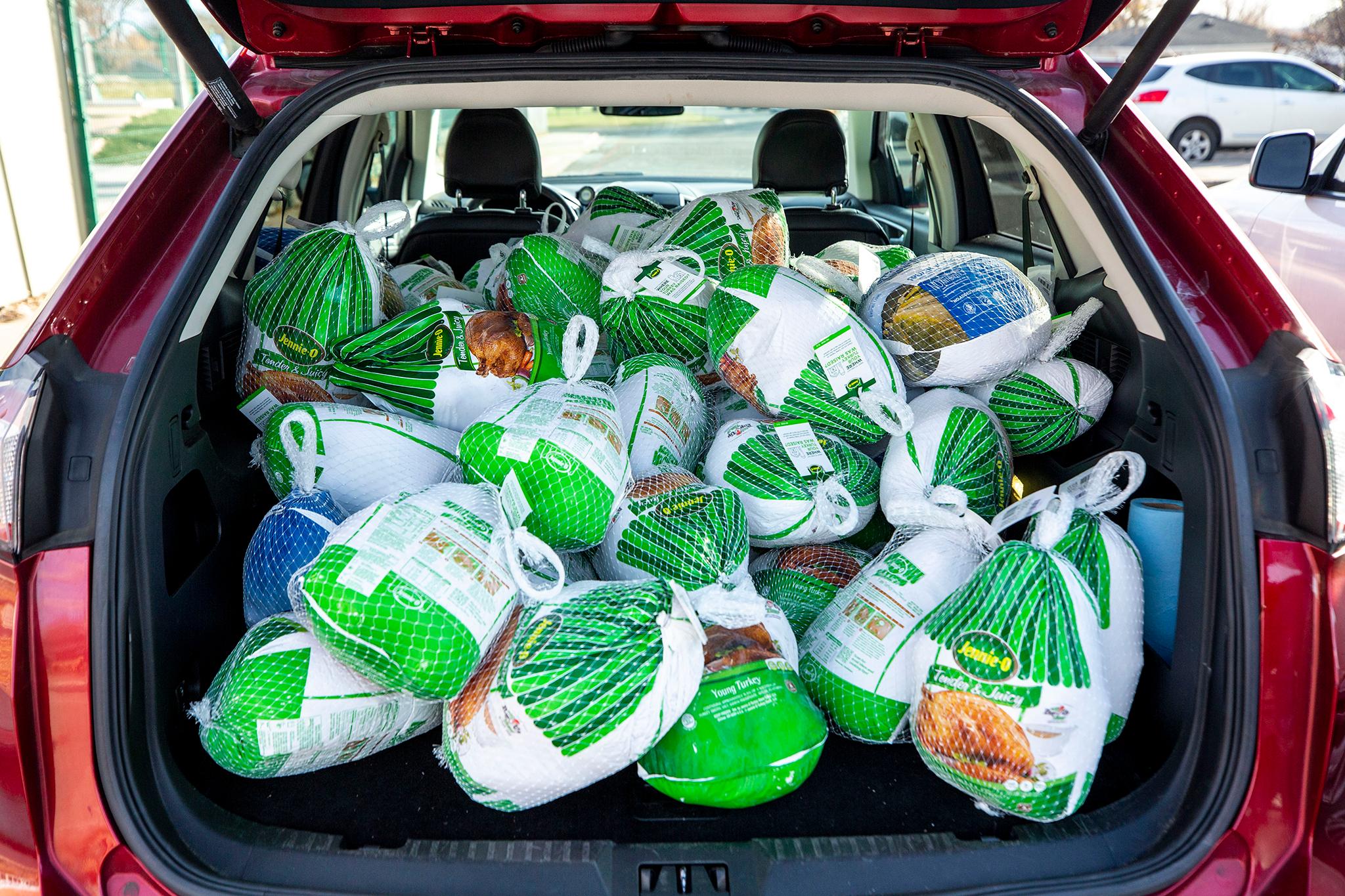Mary Gallegos nearly gave up on a proper Thanksgiving this year. She's noticed everything from canned veggies to turkey centerpieces have been costing more, so it seemed like a holiday feast would be out of the question.
Then, she saw a post on Facebook that the SouthWest Denver Coalition was giving out birds. She submitted her name, then got a note that she made the list.
"So I'm going to make a Thanksgiving for us," she said happily on Saturday, after she picked up her large frozen package.
Between the turkey she got here and and sides she picked up at some local food pantries, she was relieved the annual tradition was back on. How'd she feel about it?
"Good. Very good. Very good."
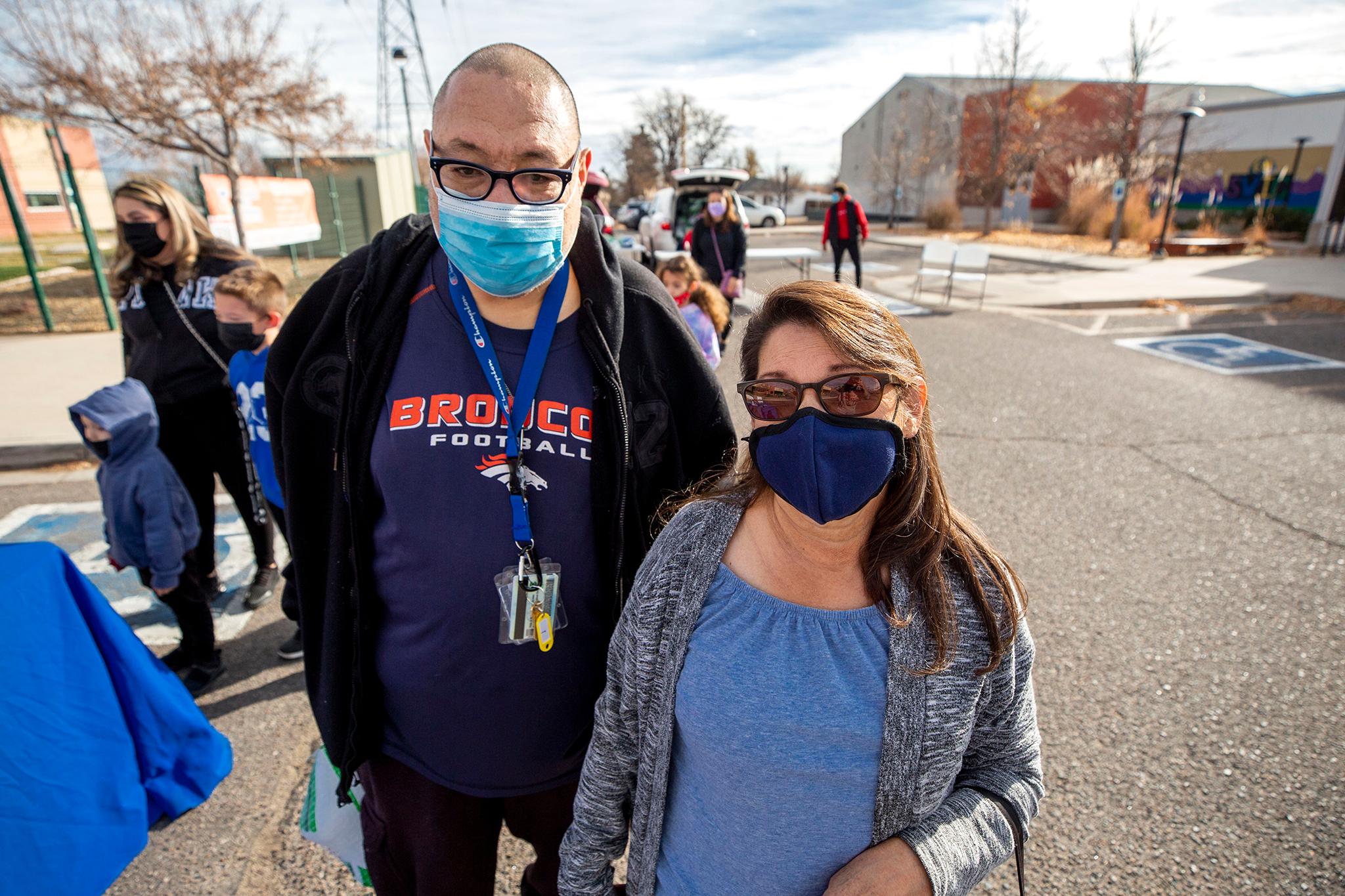
Food prices have been on the rise as the nation continues to deal with the pandemic's impact on the economy. Between October 2020 and last month, the cost of beef, poultry, fish and eggs rose 11 percent nationwide. It's an issue that's squeezing budgets for people like Gallegos, but it's also impacting nonprofits like the SouthWest Denver Coalition, who have long worked to ensure families have feasts to eat during the holidays.
Kasandra Ornelas, the coalition's executive director, said they were able to purchase 200 turkeys to hand out in Westwood this year. They had to do without fixings because yams and canned corn were too expensive. They're giving out gift cards, instead, to let people pick and choose what they'll pair with the main course. Across town in Cole, the Epworth Foundation's long-standing Feed-A-Family tradition also pivoted to gift cards due to supply issues.
Here's what's up with the turkey supply:
Don Peterson's family has been in the poultry business since the 1930s, when his father brought some of the first domesticated turkeys to Colorado.
"He started with 250 turkeys," Peterson told us. "He had as high as 90,000."
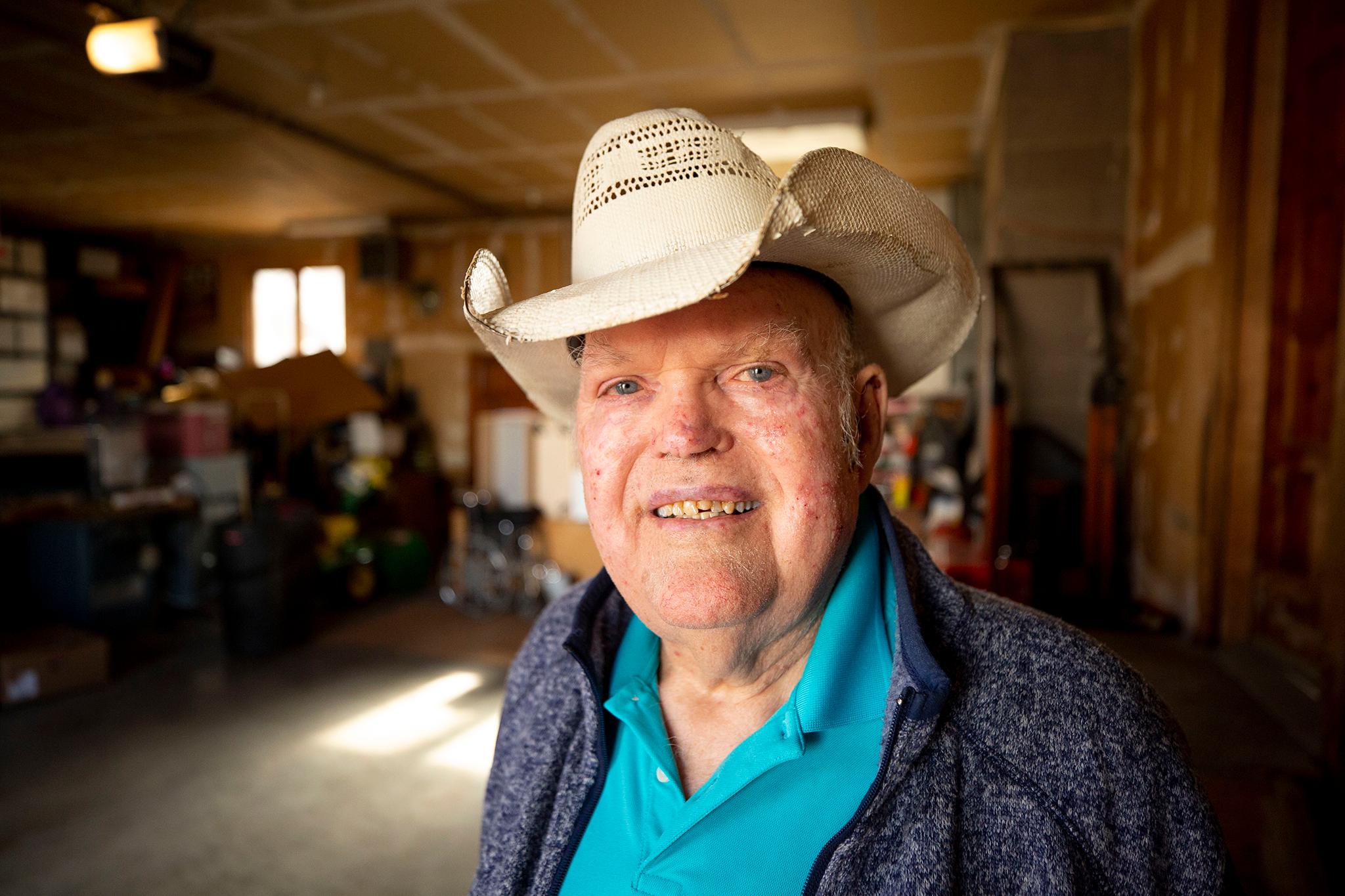
The family no longer herds birds on their Morrison farm - he said government regulations made the business unviable - so Peterson now trucks turkeys in from Minnesota. They're raised in cold weather, so they're plump, premium products. People from from Utah to South Dakota call into his home-based business to make orders.
He told us rising prices this year have rippled all through the supply chain. Feed costs are "sky high" and shipping has slowed down, which means turkeys live longer on farms, eating more and growing bigger. The result is higher prices and, Peterson told us, more incentive to cut turkey meat into smaller pieces that can be sold year-round.
His top-notch "heavy hens and heavy toms" are going about 20 cents more per pound this year, but he said his buyers don't mind too much. They're loyal return customers who were already interested in paying top dollar.
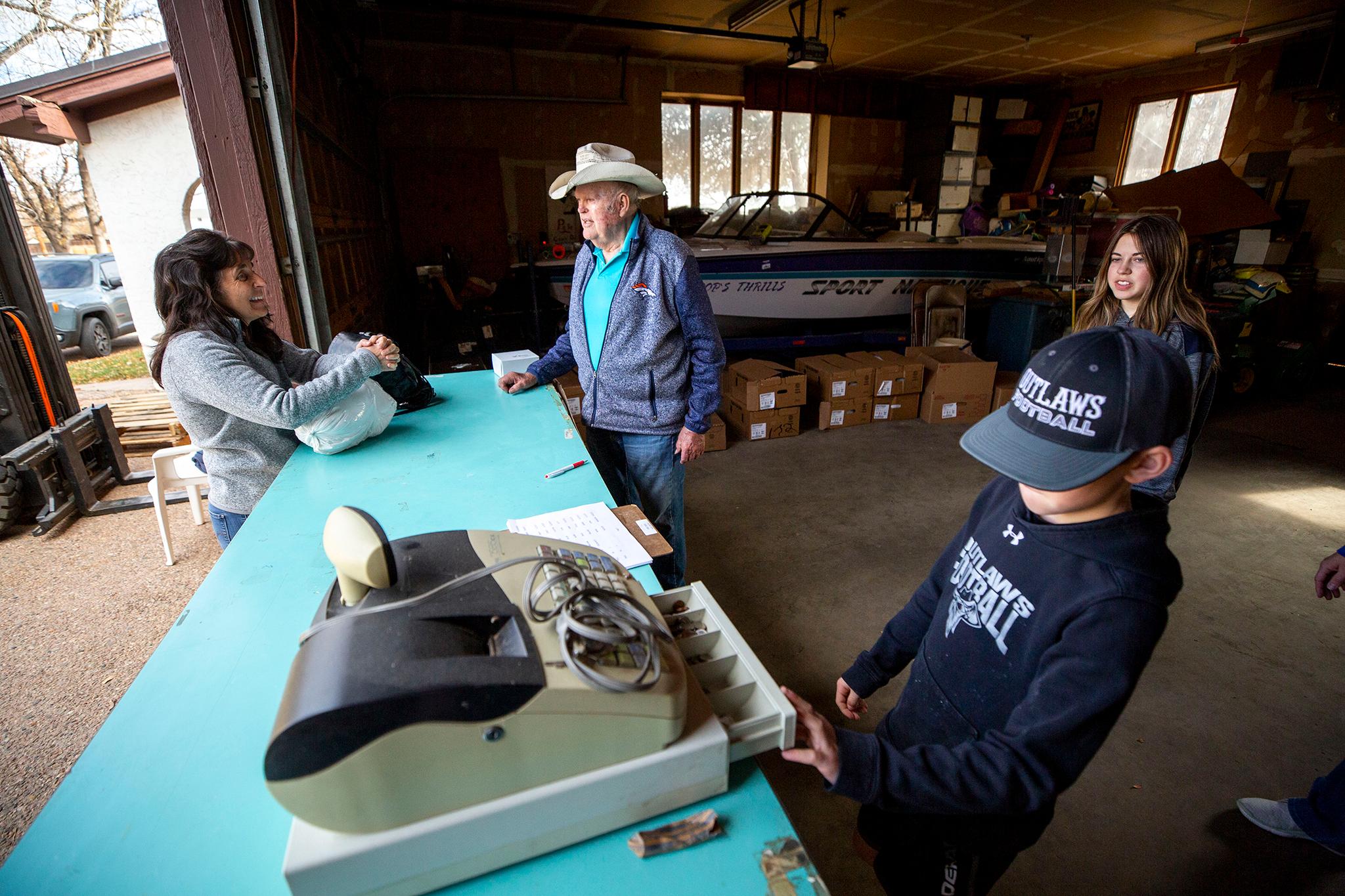
But the people in Ornelas' world are really feeling the price hikes, and that's not been limited to Thanksgiving.
Ellen Burkhardt, spokesperson with Food Bank of the Rockies, said the organization is paying 27 percent more for one pound of ground beef compared to November 2020. Vegetable oil is up 54 percent. Canned fruit is up on average by 30 percent. Raised rates on other stuff, like gasoline, plays into both the material costs of making food and what it takes to get it from the food bank to people who need to eat.
It's not that there's a shortage of products, Burkhardt told us, but higher costs do limit what the food bank and other organizations can do.
While officials at the Federal Reserve say these affordability issues won't stick with us forever, they're lasting longer than some economists expected and will definitely continue to crunch wallets through the winter.
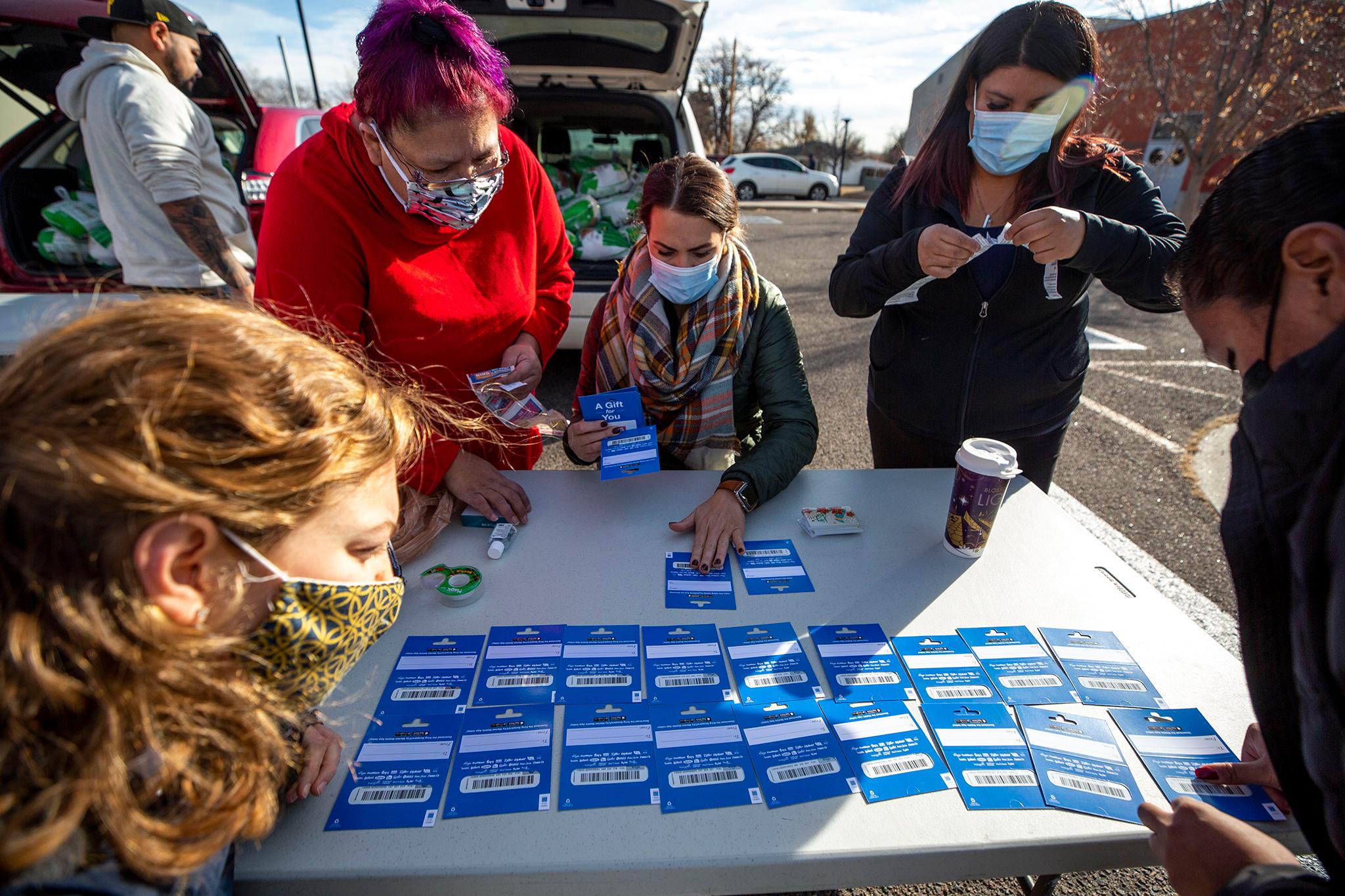
Kaila Aguirre, who brought three kids with her to the SouthWest Denver Coalition's turkey event, is a stay-at-home mom whose husband had to cut down on hours last year to avoid getting sick. While she's glad the world seems to be heading closer to something close to "normal," she said her family isn't quite out of the woods.
"It's still kind of the unknown," she said; she wouldn't go so far to say they're feeling optimistic about the future.
Ornelas said it's important that we remember we're still dealing with the impacts of this pandemic. She knows a lot of people who are still looking for work or wages high enough to live in Denver.
"They're just really, really wanting access to resources," she said.
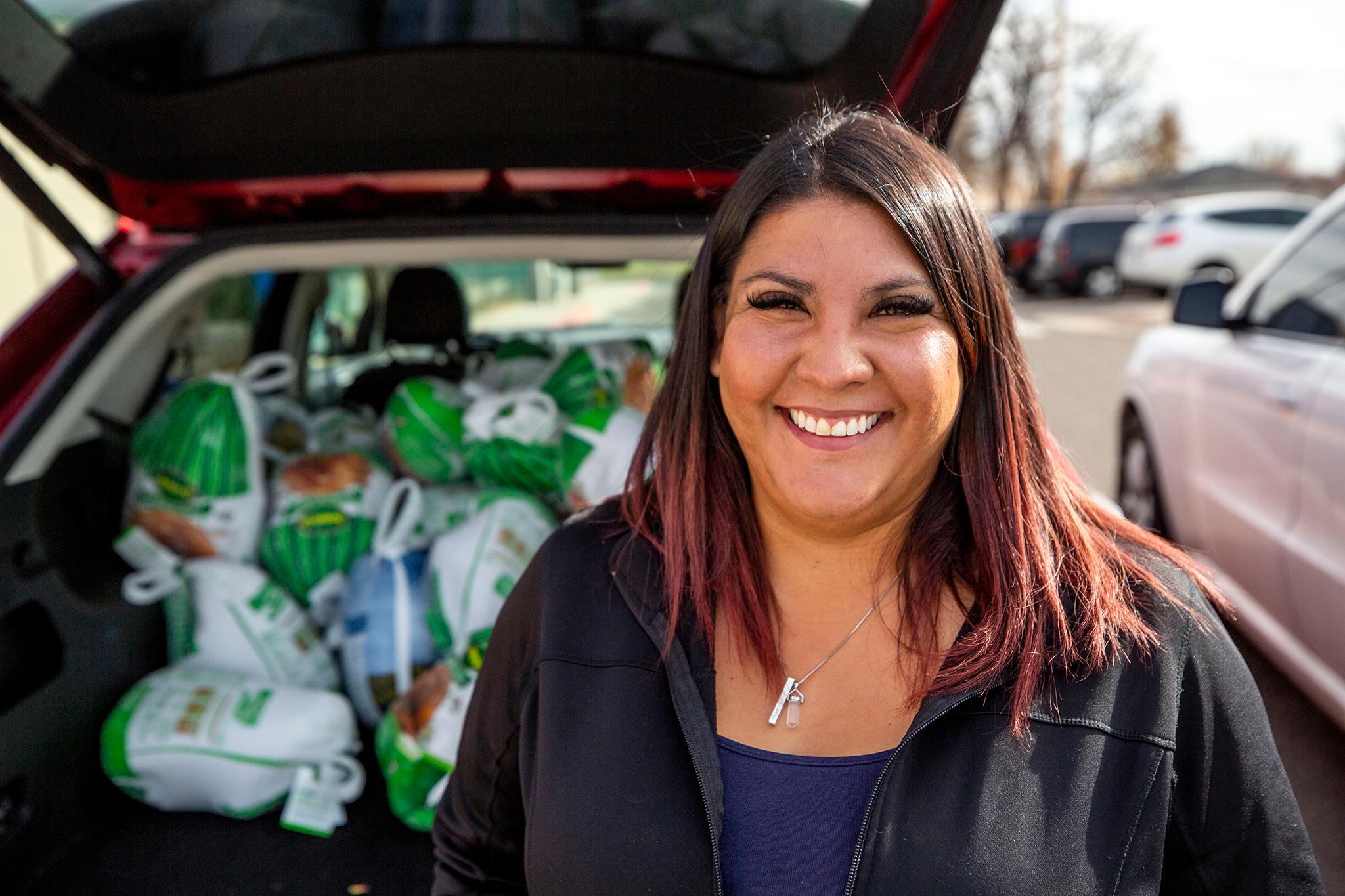
But as far as turkeys go, she said the tight marketplace hasn't kept her organization from serving the people who need a hand for the holidays.
"It doesn't worry us. We have really great partners," she said. "We've always been able to make it happen, I think sometimes it just takes a little bit longer."

